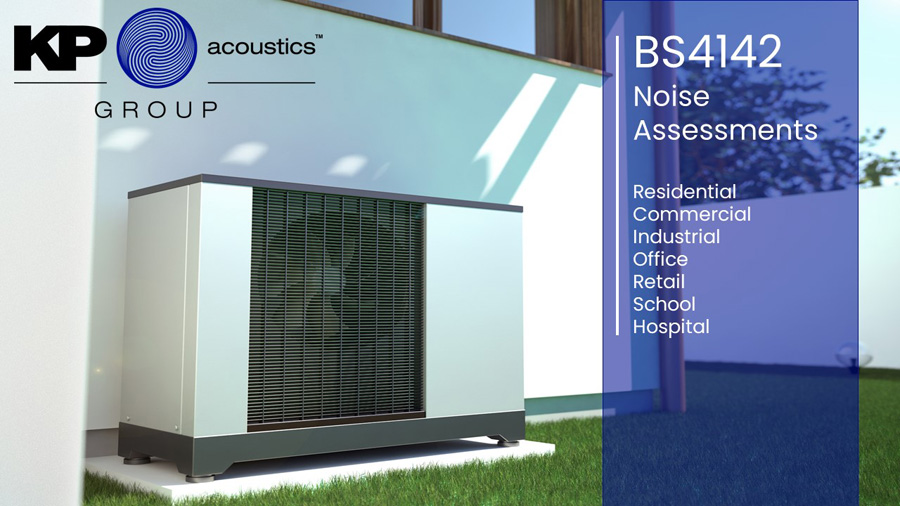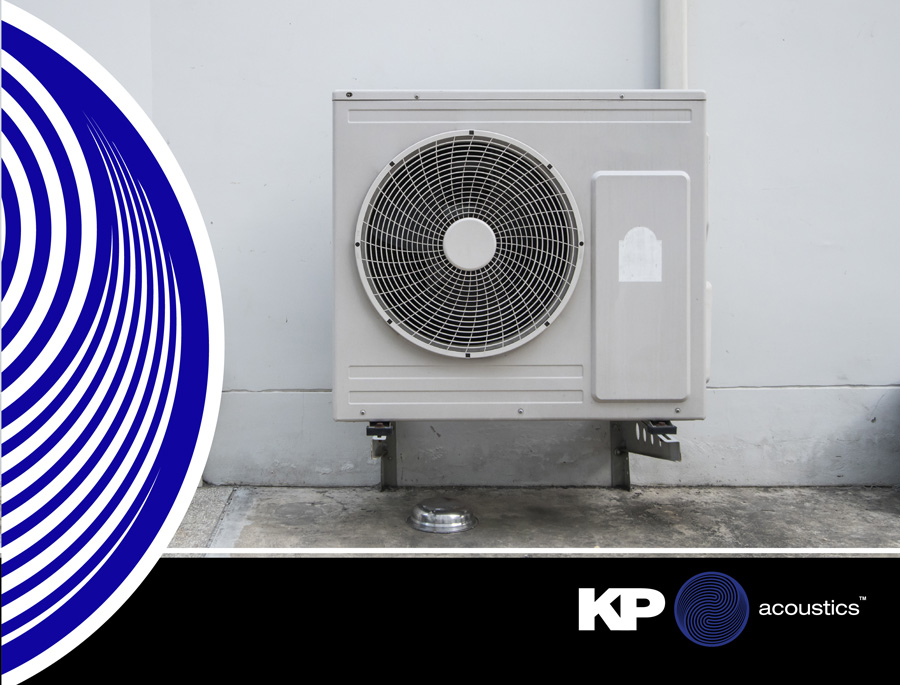
New legislation declares that gas boilers will be banned in newly built homes from 2025, making air source heat pumps the sole option for providing central heating to modern residential builds, with an estimated 700,000 being installed every year across the UK. What’s more, due to governmental regulations, it is a requirement for planners in the United Kingdom to produce noise assessment results to ensure that the air source heat pump installed does not produce noise that may disrupt the surrounding areas. Here, acoustics experts KP Acoustics outline why it is important to speak with an acoustics consultant at the beginning of your project to prevent any noise pollution that a heat pump may produce.
How does an air source heat pump operate?
With an aim to reduce emissions, architects are now looking towards implementing air source heat pumps into the construction of modern homes as another way to reduce pollution. Air source heat pumps achieve this by absorbing heat derived from outside air and converting it into a low temperature liquid. The pump then compresses the liquid into a gas before condensing it back into liquid to release the stored heat before sending it into the radiators and underfloor heating within the home.
This renewable energy technology is not only efficient but is relatively inexpensive to run compared to traditional fossil fuel-based heating systems. For every one kilowatt of electricity, an air source heat pump can produce three kilowatts of heat thus, producing more energy than the electrical energy they consume and, in light of the recent UK-based energy price hikes of up to 54 per cent (per The Guardian), could mean lower energy bills for residents in homes with the pumps installed.

The noise impact on residential areas
Essentially, a noise impact assessment is an environmental noise survey with a subsequent plant noise assessment which is fundamental when seeking planning permission. A Noise impact assessment is usually requested by a local authority to establish whether a project will have an environmental impact on the surrounding areas. In terms of the installation of air source heat pumps, guidance within British Standard BS4142 would need to be followed in addition to Local Planning Authority regulations.
BS4142 is a standard set by the British Standards Group (BSI) used to describe the procedures for measuring and assessing noise to regulate whether it will cause excessive noise pollution in residential areas. This standard can also be used to assess the impact of noise sources coming from commercial/industrial areas that may affect residential areas.
“The standard can be used to assess sound, including a change of sound, as a response to a complaint or as part of a planning application. It supports current UK planning guidance and Environment Agency requirements on noise impact assessments.” —BSI Group, BS4142 – Methods for rating and assessing industrial and commercial sound
So why is it important for architects to consult with acoustic consultants at the beginning stages of a project? Noise pollution should be calculated during the design phase of a project to avoid noise disturbances to residents and neighbours. Air source heat pumps vary in shape and size, depending on the manufacturer — with this in mind, modernised air source heat pumps are now built to emit lower levels of noise. However, should these pumps produce levels of noise above 42 decibels, then installation will require planning permission.
Advice from an acoustics consultant is crucial
Seeking advice from an acoustics consultant in the early stages of your project will not only help to prevent issues that might occur in later stages of construction, but also help architects best determine where an air source heat pump will be situated throughout their project. With air pumps quickly becoming the only way to heat newly built residential buildings, both noise isolation advice and noise impact assessments carried out by trusted acoustics consultants will be essential in ensuring that residential construction projects run seamlessly.









